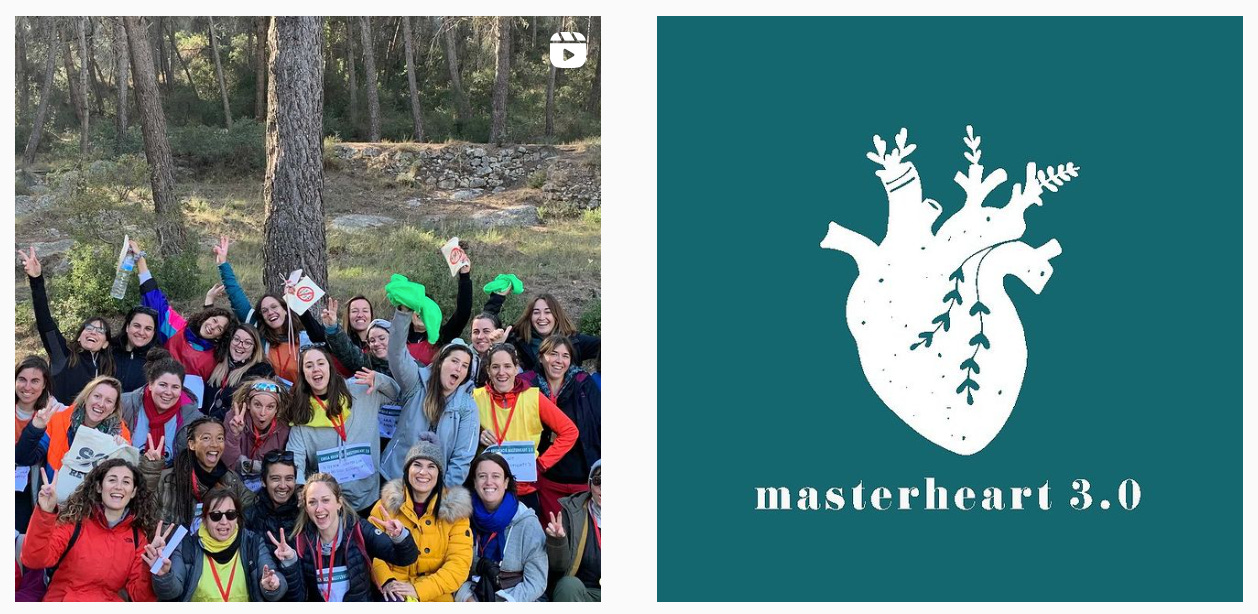#4: Why Would Anyone go on a team-building exercise?
Playing our way to extrinsic goals + rewriting our own stories
“Let’s call it a game,” said Carles, the organiser. “Otherwise people start to worry.”
“Is there a prize? Like a real one,” one participant asked, and everyone laughed. “What? Some of us play for the prize,” she shrugged.
“There are prizes,” Carles answered. “But I promise you the outcome of the game won’t make any difference to your life. We’re doing this to get to know each other, and to have a good time,” he enjoined.
“We did a similar orienteering race in high school, and got terribly lost,” I warned my teammates. “I pretended that everything was fine and the rest of the group didn’t really notice.” This got the polite laughs that a well-worn anecdote gets.
“I’m not a competitive person. Competition de-motivates me,” I went on, as if it was something to be proud of.
“Oh,” one teammate said kindly, like she was a bit sorry for me.
After a while, I saw myself walking that bit faster; getting into a jog as we neared beacons; ticking them off the map excitedly; checking out what the other groups were doing; taking charge of one of the group’s tasks. We were working smoothly together. We had gotten X beacons in 20 minutes. We could win this!?
“Maybe I am competitive when I’m winning,” I said, and everybody laughed.
And then, we did win.

I took a proud selfie with my (plastic) gold medal and sent it to my beloved, who responded: 13 clap emojis + 8 confetti emojis + bravo + 3 exclamation marks.
I thought: My son is going to love this—the medal, the treasure hunt story. Look at me, modelling persistence and wholesome fun in nature! I patted myself in the back.
Then I admitted to myself: I was loving it, too.
With my intrinsic motivation explorer hat on, I learnt a few things about myself that day:
Reaching for extrinsic goals can feel joyous
This newsletter is about exploring and celebrating intrinsic motivation, but that day was extrinsically driven from the get-go.
First, I didn’t choose to do this orienteering race; I went along with it. It was part of a package of activities curated by Masterheart 3.0, a lovely group of women freelancers and entrepreneurs. Given the option to sign up and pay separately for a team-building1 exercise, I might have found excuses to do something else with my Sunday morning.
Second, there were physical rewards and quantitative measures of success: How many beacons did we find? Did we solve the puzzle? In how much time?
The truth is: I felt wary of the engineered bonding experience. And the truth also is: I enjoyed the experience, plastic gold medal and all.
Competing can also be harmless fun
This might be obvious to many of you but has been a tiny epiphany for me: competition can also be sweet and playful.
We went on a walk yesterday, and my 4-year-old wanted to run. “I’ll race you to that waste bin,” I said, and we laughed our way there.
If I’d said: “let’s listen to our bodies and run to that waste bin at our individual pace,” it would probably have been less fun.
If I’d said: “you run and I’ll watch you,” it would definitely have been a bit lame.
It’s OK to edit my own story
I had this idea in my head that all competition and potential conflicts turn me off; that my sense of direction is weak; that I’m smart but not athletic; that group work is harder than working on your own.
But seriously, I was 14 when I did that high-school orienteering race. I don’t need to hold on to that story.
I am perfectly able to read a map. I have worked hard under pressure—in harsh physical situations; under incompetent management; meeting mean deadlines. I have navigated conflicts that felt scary but necessary. I keep learning and mastering new skills, physical and otherwise.
I am not 14 anymore 💛.
I can’t hear the words “team-building” without giggling about that Flight of the Conchords song: # TEAM-BUILDING EXERCISE ‘99 #


